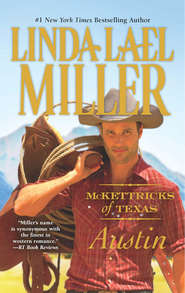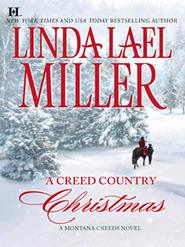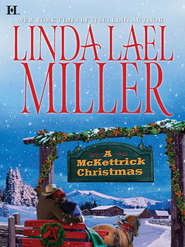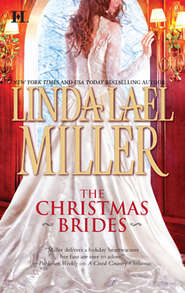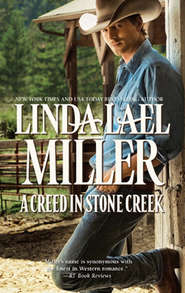По всем вопросам обращайтесь на: info@litportal.ru
(©) 2003-2024.
✖
There and Now
Автор
Год написания книги
2018
Настройки чтения
Размер шрифта
Высота строк
Поля
Elisabeth bit her lower lip and hoisted her slender frame away from the door. It was too much to hope, she thought with a beleaguered smile, that Aunt Verity might still be wandering these spacious rooms.
With a sigh, she hung her shoulder bag over the newel post at the base of the stairway and hoisted the suitcase. At the top of the stairs were three bedrooms, all on the right-hand side of the hallway. Elisabeth paused, looking curiously at the single door on the left-hand side and touched the doorknob.
Beyond that panel of wood was a ten-foot drop to the sun-porch roof. The sealed door had always fascinated both her and Rue, perhaps because Verity had told them such convincing stories about the world that lay on the other side of it.
Elisabeth smiled and shook her head, making her chin-length blond curls bounce around her face. “You may be gone, Auntie,” she said softly, “but your fanciful influence lives on.”
With that, Elisabeth opened the door on the opposite side of the hallway and stepped into the master suite that had always been Verity’s. Although the rest of the house was badly in need of cleaning, the real-estate agent had sent a cleaning crew over in anticipation of Elisabeth’s arrival to prepare the kitchen and one bedroom.
The big four-poster had been uncovered and polished, made up with the familiar crocheted ecru spread and pillow shams, and the scent of lemon furniture polish filled the air. Elisabeth laid the suitcase on the blue-velvet upholstered bench at the foot of the bed and tucked her hands into the back pockets of her jeans as she looked around the room.
The giant mahogany armoire stood between two floor-to-ceiling windows covered by billowing curtains of Nottingham lace, waiting to receive the few clothes Elisabeth had brought with her. A pair of Queen Anne chairs, upholstered in rich blue velvet, sat facing the little brick fireplace, and a chaise longue covered in cream-colored brocade graced the opposite wall. There was also a desk—Verity had called it a secretary—and a vanity table with a seat needle-pointed with pale roses.
Pushing her tousled tresses back from her face with both hands, Elisabeth went to the vanity and perched on the bench. A lump filled her throat as she recalled sitting here while Verity styled her hair for a summer dance.
With a hand that trembled slightly, Elisabeth opened the ivory-inlaid jewel box. Verity’s favorite antique necklace, given to her by a friend, lay within.
Elisabeth frowned. Odd, she reflected. She’d thought Rue had taken the delicate filigree necklace, since she was the one who loved jewelry. Verity’s modest estate—the house, furnishings, a few bangles and a small trust fund—had been left to Elisabeth and Rue in equal shares, and then the cousins had made divisions of their own.
Carefully, Elisabeth opened the catch and draped the necklace around her neck. She smiled sadly, recalling Verity’s assertions that the pendant possessed some magical power.
Just then, the telephone rang, startling her even though the agent at the real-estate office had told her service had been connected and had given her the new number.
“Hello?” she said into the receiver of the French phone sitting on the vanity table.
“So you made it in one piece.” The voice belonged to Janet Finch, one of Elisabeth’s closest friends. She and Janet had taught together at Hillsdale Elementary School in nearby Seattle.
Elisabeth sagged a little as she gazed into the mirror. The necklace looked incongruous with her Seahawks sweatshirt. “You make it sound like I crawled here through a barrage of bullets,” she replied. “I’m all right, Janet. Really.”
Janet sighed. “Divorce is painful, even if it was your own idea,” she insisted quietly. “I just think it would have been better if you’d stayed in Seattle, where your friends are. I mean, who do you know in that town now that your aunt is gone and Rue is off in South Africa or Eastern Europe or wherever she is?”
Through the windows, Elisabeth could see the neighbor’s orchard. It was only too true that most of her friends had long since moved away from Pine River and her life had been in Seattle from the moment she’d married Ian. “I know myself,” she answered. “And the Buzbee sisters.”
Despite her obvious concerns, Janet laughed. Like Elisabeth, she was barely thirty, but she could be a real curmudgeon at times. “The Buzbee sisters? I don’t think you’ve told me about them.”
Elisabeth smiled. “Of course, I have. They live across the road. They’re spinsters, but they’re also card-carrying adventurers. According to Aunt Verity, they’ve been all over the world—they even did a joint hitch in the Peace Corps.”
“Fascinating,” Janet said, but Elisabeth couldn’t tell whether she meant it or not.
“When you come down to visit, I’ll introduce you,” Elisabeth promised, barely stifling a yawn. Lately, she’d tired easily; the emotional stresses and strains of the past year were catching up with her.
“If that’s an invitation, I’m grabbing it,” Janet said quickly. “I’ll be down on Friday night to spend the weekend helping you settle in.”
Elisabeth smiled, looking around the perfectly furnished room. There wasn’t going to be a tremendous amount of “settling in” to do. And although she wanted to see Janet, she would have preferred to spend that first weekend alone, sorting through her thoughts and absorbing the special ambiance of Aunt Verity’s house. “I’ll make spaghetti and meatballs,” she said, resigned. “Call me when you get to Pine River and I’ll give you directions.”
“I don’t need directions,” Janet pointed out reasonably. “You were married in that house, in case you’ve forgotten, and I was there.” Her voice took on a teasing note. “You remember. Rue and I and two of your friends from college were all dressed alike, in floaty pink dresses and picture hats, and your cousin said it was a shame we couldn’t sing harmony.”
Elisabeth chuckled and closed her eyes. How she missed Rue, with her quick, lethal wit. She drew a deep breath, let it out, and made an effort to sound cheerful so Janet wouldn’t worry about her any more than she already did. “I’ll be looking for you on Friday, in time for dinner,” Elisabeth said. And then, after quick good-byes, she hung up.
With a sigh of relief, Elisabeth crossed the room to the enormous bed, kicked off her sneakers and stretched out, her hands cupped behind her head. Looking up at the intricately crocheted canopy, she felt a sense of warm well-being wash over her.
She would make a list and shop for groceries later, she promised herself. Right now she needed to rest her eyes for a few moments.
She must have drifted off, because when the music awakened her, the spill of sunlight across the hooked rug beside the bed had receded and there was a slight chill in the air.
Music.
Elisabeth’s heart surged into her throat as she sat up and looked around. There was no radio or TV in the room, and yet the distant, fairylike notes of a piano still teased her ears, accompanied by a child’s voice.
“Twinkle, twinkle, little star how I wonder what you are….”
Awkwardly, Elisabeth scrambled off the bed to pursue the sound, but it ceased when she reached the hallway.
All the same, she hurried downstairs.
The small parlor, where Aunt Verity’s spinet was kept, was empty, and the piano itself was hidden beneath a large canvas dust cover. Feeling a headache begin to pulse beneath her right temple, Elisabeth checked the big, old-fashioned radio in the large parlor and the portable TV set on the kitchen counter.
Neither was on.
She shoved her hands through her already-mussed hair. Maybe her friends were right to be concerned. Maybe the divorce was affecting her more deeply than she’d ever guessed.
The thing to do, she decided after a five-minute struggle to regain her composure, was to get her purse and drive into Pine River for groceries. Since she’d left her shoes behind, she started up the rear stairway.
An instant after Elisabeth reached the second floor, the piano music sounded clearly again, thunderous and discordant. She froze, her fingers closed around Aunt Verity’s pendant.
“I don’t want to practice anymore,” a child’s voice said petulantly. “It’s sunny out, and Vera and I are having a picnic by the creek.”
Elisabeth closed her eyes, battling to retain her equilibrium. The voice, like the music, was coming from the other side of the door Aunt Verity had told so many stories about.
As jarring as the experience was, Elisabeth had no sense of evil. It was her own mental state she feared, not the ghosts that supposedly populated this old house. Perhaps in her case, the result of a broken dream had been a broken mind.
She walked slowly along the highway, gripped the doorknob and rattled it fiercely. The effort to open the door was hopeless, since the passage had been sealed long ago, but Elisabeth didn’t let up. “Who’s there?” she cried.
She wasn’t crazy. Someone, somewhere, was playing a cruel joke on her.
Finally exhausted, she released her desperate hold on the knob, and asked again plaintively, “Please. Who’s there?”
“Just us, dear,” said a sweet feminine voice from the top of the main stairway. The music had died away to an echo that Elisabeth thought probably existed only in her mind.
She turned, a wan smile on her face, to see the Buzbee sisters, Cecily and Roberta, standing nearby.
Roberta, the taller and more outgoing of the two, was holding a covered baking dish and frowning. “Are you quite all right, Elisabeth?” she asked.
Cecily was watching Elisabeth with enormous blue eyes. “That door led to the old part of the house,” she said. “The section that was burned away in 1892.”
Elisabeth felt foolish, having been caught trying to open a door to nowhere. She managed another smile and said, “Miss Cecily, Miss Roberta—it’s so good to see you.”
“We’ve brought Cecily’s beef casserole,” Roberta said, practical as ever. “Sister and I thought you wouldn’t want to cook, this being your first night in the house.”






